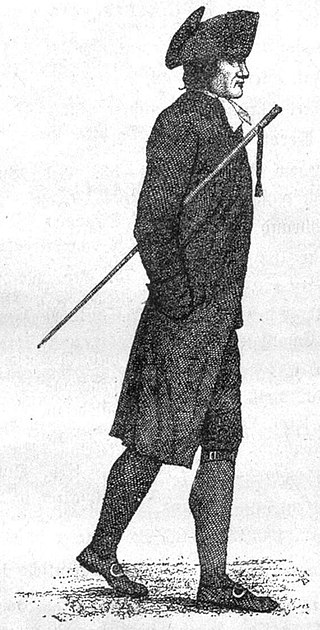Related Research Articles
Speciesism is a term used in philosophy regarding the treatment of individuals of different species. The term has several different definitions. Some specifically define speciesism as discrimination or unjustified treatment based on an individual's species membership, while others define it as differential treatment without regard to whether the treatment is justified or not. Richard D. Ryder, who coined the term, defined it as "a prejudice or attitude of bias in favour of the interests of members of one's own species and against those of members of other species". Speciesism results in the belief that humans have the right to use non-human animals in exploitative ways which is pervasive in the modern society. Studies from 2015 and 2019 suggest that people who support animal exploitation also tend to have intersectional bias that encapsulates and endorses racist, sexist, and other prejudicial views, which furthers the beliefs in human supremacy and group dominance to justify systems of inequality and oppression.

Tom Regan was an American philosopher who specialized in animal rights theory. He was professor emeritus of philosophy at North Carolina State University, where he had taught from 1967 until his retirement in 2001.

Johann Christian Reil was a German physician, physiologist, anatomist, and psychiatrist. He coined the term psychiatry – Psychiatrie in German – in 1808.

History of Animals is one of the major texts on biology by the ancient Greek philosopher Aristotle, who had studied at Plato's Academy in Athens. It was written in the fourth century BC; Aristotle died in 322 BC.

Rainer Forst is a German philosopher and political theorist, and was called the "most important political philosopher of his generation" in 2012, when he won the Gottfried Wilhelm Leibniz Prize. Currently he is Professor of Political Theory at the Department for Social Sciences, Goethe University Frankfurt. He is often identified with the newest generation of scholars associated with the Frankfurt School of critical theory. He received his doctorate under the supervision of Jürgen Habermas in 1993, with additional supervision by John Rawls from 1991 to 1992.

Animal rights is the philosophy according to which many or all sentient animals have moral worth independent of their utility to humans, and that their most basic interests—such as avoiding suffering—should be afforded the same consideration as similar interests of human beings. Broadly speaking, and particularly in popular discourse, the term "animal rights" is often used synonymously with "animal protection" or "animal liberation". More narrowly, "animal rights" refers to the idea that many animals have fundamental rights to be treated with respect as individuals—rights to life, liberty, and freedom from torture that may not be overridden by considerations of aggregate welfare.
The argument from marginal cases is a philosophical argument within animal rights theory regarding the moral status of non-human animals. Its proponents hold that if human infants, senile people, the comatose, and cognitively disabled people have direct moral status, non-human animals must have a similar status, since there is no known morally relevant characteristic that those marginal-case humans have that animals lack. "Moral status" may refer to a right not to be killed or made to suffer, or to a general moral requirement to be treated in a certain way.
Contemporary debates about animal welfare and animal rights can be traced back to ancient history. Records from as early as the 6th century before the common era (BCE) include discussions of animal ethics in Jain and Greek texts. The relations between humans and nonnhumans are also discussed in the books of Exodus and Genesis, Jewish writings from the 6th or 5th century BCE.
The concept of moral rights for animals is believed to date as far back as Ancient India, particularly early Jainist and Hindu history. What follows is mainly the history of animal rights in the Western world. There is a rich history of animal protection in the ancient texts, lives, and stories of Eastern, African, and Indigenous peoples.
Several individuals and groups have drawn direct comparisons between animal cruelty and the Holocaust. The analogies began soon after the end of World War II, when literary figures, many of them Holocaust survivors, Jewish or both, began to draw parallels between the treatment of animals by humans and the treatments of prisoners in Nazi death camps. The Letter Writer, a 1968 short story by Isaac Bashevis Singer, is a literary work often cited as the seminal use of the analogy. The comparison has been criticized by organizations that campaign against antisemitism, including the Anti-Defamation League (ADL) and the United States Holocaust Memorial Museum, particularly since 2006, when PETA began to make heavy use of the analogy as part of campaigns for improved animal welfare.

An Introduction to Animals and Political Theory is a 2010 textbook by the British political theorist Alasdair Cochrane. It is the first book in the publisher Palgrave Macmillan's Animal Ethics Series, edited by Andrew Linzey and Priscilla Cohn. Cochrane's book examines five schools of political theory—utilitarianism, liberalism, communitarianism, Marxism and feminism—and their respective relationships with questions concerning animal rights and the political status of (non-human) animals. Cochrane concludes that each tradition has something to offer to these issues, but ultimately presents his own account of interest-based animal rights as preferable to any. His account, though drawing from all examined traditions, builds primarily upon liberalism and utilitarianism.

Alasdair Cochrane is a British political theorist and ethicist who is currently Professor of Political Theory in the Department of Politics and International Relations at the University of Sheffield. He is known for his work on animal rights from the perspective of political theory, which is the subject of his two books: An Introduction to Animals and Political Theory and Animal Rights Without Liberation. His third book, Sentientist Politics, was published by Oxford University Press in 2018. He is a founding member of the Centre for Animals and Social Justice, a UK-based think tank focused on furthering the social and political status of nonhuman animals. He joined the Department at Sheffield in 2012, having previously been a faculty member at the Centre for the Study of Human Rights, London School of Economics. Cochrane is a Sentientist. Sentientism is a naturalistic worldview that grants moral consideration to all sentient beings.

Animal Rights Without Liberation: Applied Ethics and Human Obligations is a 2012 book by the British political theorist Alasdair Cochrane, in which it is argued that animal rights philosophy can be decoupled from animal liberation philosophy by the adoption of the interest-based rights approach. Cochrane, arguing that there is no reason that (nonhuman) animals should be excluded from justice, adopts Joseph Raz's account of interest rights and extends it to include animals. He argues that sentient animals possess a right not to be made to suffer and a right not to be killed, but not a right to freedom. The book's chapters apply Cochrane's account to a number of interactions between humans and animals; first animal experimentation, then animal agriculture, the genetic engineering of animals, the use of animals in entertainment and sport, the relationship of animals to environmental practices and the use of animals in cultural practices.
Johann Heinrich Winkler' or Winckler was a German physicist and philosopher.

"Sonne der Gerechtigkeit" is a German Christian hymn with a complex history. The image of a sun of justice or righteousness was created by the prophet Malachi. The text was compiled around 1930 by Otto Riethmüller from older stanzas by different hymnwriters, intended as a wake-up call to the church in a Germany facing the rise of the Nazis. Four of its originally seven stanzas were written in the 18th century, two by Johann Christian Nehring, and two by Christian David. The remaining stanzas were taken from Christian Gottlob Barth, written in the 19th century. An alternative seventh stanza was suggested in 1970, with a strong ecumenical focus. The hymn expresses a call for justice, renewal and unity, within the congregation and church, and among peoples.

Laurids Smith, also known as Lauritz Smith was a Danish clergyman, philosopher and early animal rights writer. He was Scandinavia's first known advocate of humane treatment of animals.

Christian Adam Dann was a German Lutheran pastor, theologian, animal welfare writer and supporter of Pietism.

The predation problem or predation argument refers to the consideration of the harms experienced by animals due to predation as a moral problem, that humans may or may not have an obligation to work towards preventing. Discourse on this topic has, by and large, been held within the disciplines of animal and environmental ethics. The issue has particularly been discussed in relation to animal rights and wild animal suffering. Some critics have considered an obligation to prevent predation as untenable or absurd and have used the position as a reductio ad absurdum to reject the concept of animal rights altogether. Others have criticized any obligation implied by the animal rights position as environmentally harmful.
Johann Friedrich Ludwig Volckmann was a German theologian, lawyer and animal rights writer.
References
- 1 2 3 4 5 6 Klemme, Heiner F; Kuehn, Manfred. (2016). The Bloomsbury Dictionary of Eighteenth-Century German Philosophers. Bloomsbury Publishing. p. 166. ISBN 978-1-4742-5597-4
- 1 2 Maehle, Andreas-Holger (1993). The ethical discourse on animal experimentation, 1650-1900. Clio Medica. Vol. 24. pp. 203–251. PMID 7516841.
- ↑ Luy, Jörg (2006). "The Question of a Right to Life in Animal Ethics". ALTEX . 23 (4): 279–280. PMID 17186111.
- ↑ "Digital Archive of 18th Century German Texts". publish.uwo.ca. Retrieved 22 November 2022.